In March this year, Beyoncé announced that she was doing the ’22-Day Revolution’ plant-based diet in preparation for her appearance at Coachella, Instagramming herself with the caption “Vegan Time!!’ I’m delighted whenever an influential celebrity endorses plant-based eating, the resulting reduction in meat and dairy intake having obvious benefits for animals and the planet, as well as people’s personal health. But Marco Borges’ 22-Day Revolution “all-vegan, all-plant-based diet” isn’t actually ‘all-vegan’: it begins and ends at the dinner table and the goal is healthy weight loss, as opposed to any broader ethical concern. Veganism is a social justice movement, and to be vegan is to commit to making life better for the billions of animals in the world that suffer not just for our meals, but for our clothes, cosmetics, household products and entertainment.
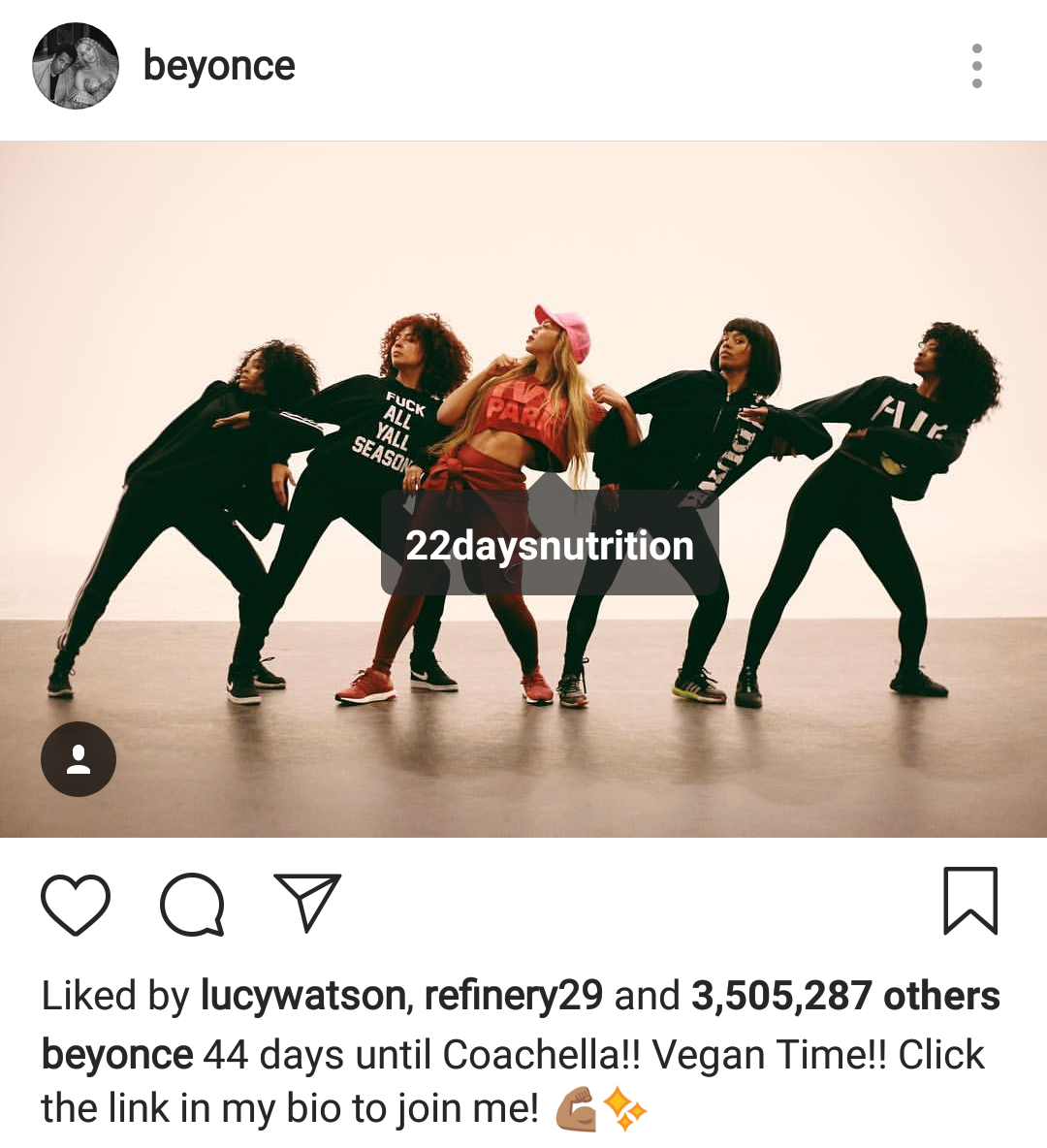
Distinguishing between living a vegan lifestyle and eating a plant-based diet is important. I hate vegan militancy as much as the next person, and firmly believe that every step towards veganism helps, whether you be a new vegetarian or just trying to reduce your meat intake. After all, the animals don’t care why you’re not eating them. And it’s impossible to ever be fully vegan anyway: we live in a capitalist society where everything we buy has some sort of impact, whether we’re talking about wild animals killed in soy fields or the taxes we pay subsidizing meat and dairy production. However, if you call yourself ‘a vegan’, you need to be aware that you’re making a statement not simply about what you put in your mouth, but about how you try to live your whole life. In that sense, it’s not possible to be ‘a little bit vegan’ or ‘sometimes vegan’: if you are taking steps to do everything within your power to refuse to support systems that use and harm animals, you are vegan. Equally, if you don’t eat meat, dairy or eggs for health reasons but you’re happy to buy leather products or make-up that’s tested on animals, you’re living a plant-based lifestyle. I’m not saying that every vegan makes an immediate cold-turkey switch (this is actually rare and I wouldn’t advise it!) but there’s a huge difference between being on a vegan journey, whatever stage you might be at, and eating plant-based with no intention of making broader changes. And when people doing the latter call themselves ‘vegan’, it can give non-vegans a misleading idea of what vegans stand for and why they choose to shun meat and dairy.
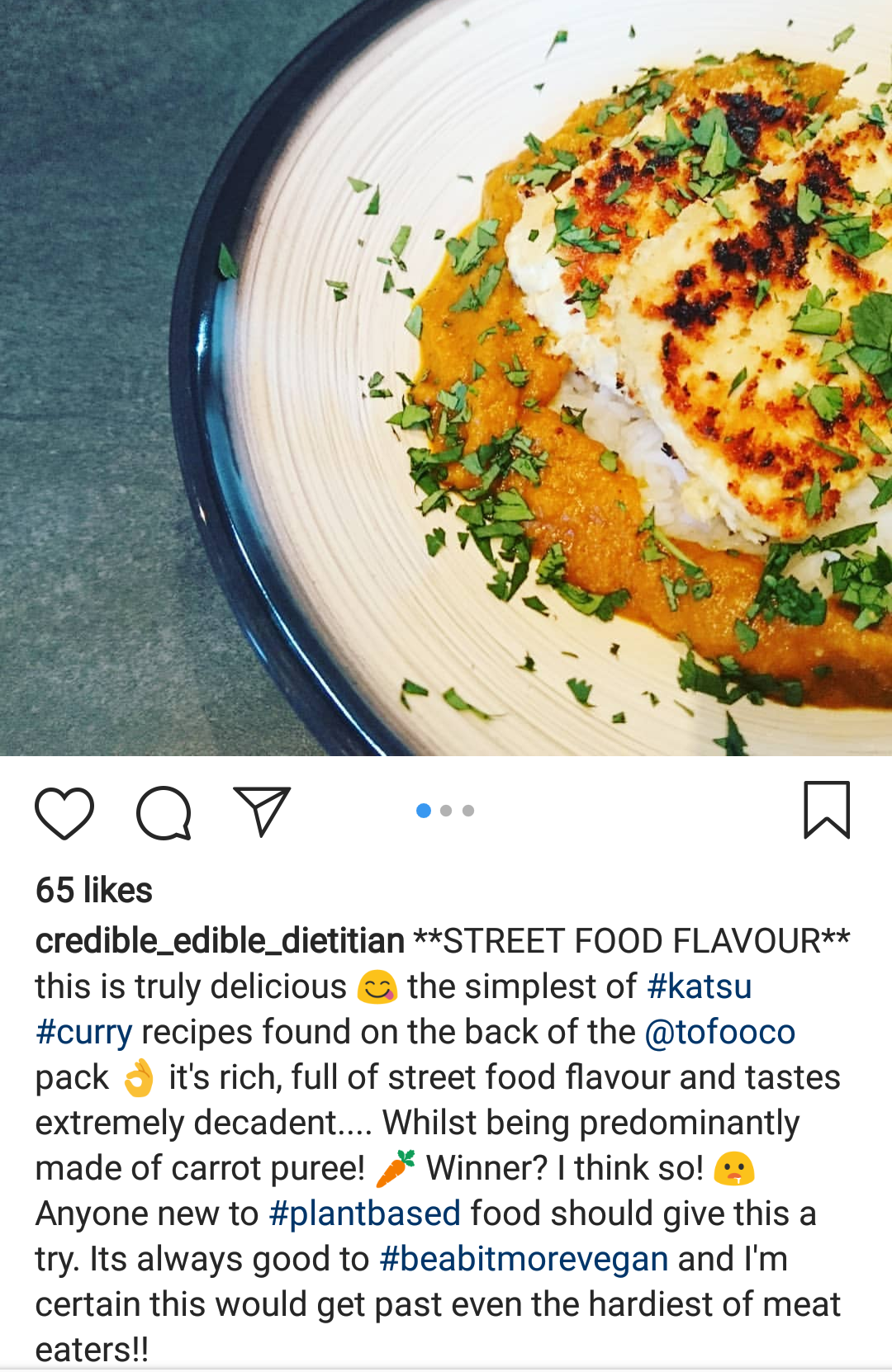
A friend who posted the image above eats mainly plant-based and passionately advocates reducing meat and dairy for environmental as well as health reasons. Her promotion of a high-protein meat-free diet is fantastic and I fully support people who choose to eat plant-based for their health or for the planet (especially as the latter has a positive impact for animals too). Plant-based food is amazing; I’m all for plant-based accounts using vegan hashtags so that I can discover new recipes (you don’t have to be vegan to eat #whatveganseat after all). However, as my friend acknowledges herself (using the #beabitmorevegan hashtag for emphasis), it can be problematic and reductive to call that choice to eat plant-based wholly ‘vegan’. As of this year, I feed my dog vegan pet food; does that make him vegan? Of course not! He eats a primarily plant-based diet but he’s not trying to live his life by a specific set of moral values. As a food choice, vegetarianism or veganism fails to capture the bigger picture of oppression or offer any real strategy towards animal liberation.
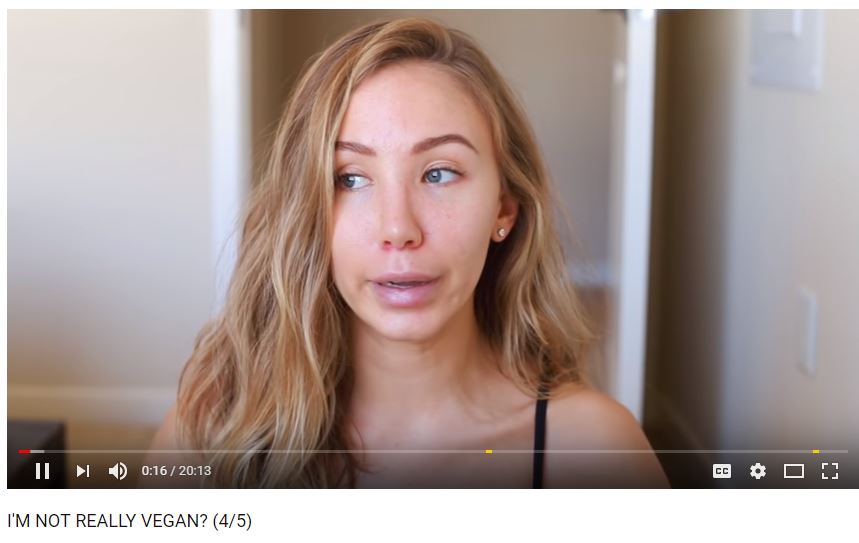
One way that confusing plant-based eating with veganism can be harmful is that it can endorse the idea that vegans are tempted to ‘cheat’, secretly gorging on cheeseboards or buying kebabs on drunken nights out. If you simply eat ‘plant-based’ for your health, ‘cheating’ isn’t really a big deal because you’re only cheating yourself. But if you claim to live a vegan lifestyle, it becomes a bigger issue, because you’re cheating the animals you’ve committed to helping. I think that’s why people (myself included) found YouTuber Kalel Cullen’s recent ‘confession’ so damaging. Cullen admitted to willfully buying and eating dairy via a social media video titled ‘I’m Not Really Vegan?’, explaining that she was ‘just not ready’ to replace cinema popcorn and chocolate bars in her diet. As I said, I totally get that nobody is 100% vegan and Cullen has done a huge amount to educate her fans on vegan ethics. But I do find this video problematic because her confession perpetuates the idea that veganism means ‘missing out’ on something, denying yourself an irresistible pleasure. Actually, in my experience, when you don’t eat meat or dairy for ethical reasons, these foods quickly lose their appeal because they come to have an association with animal suffering. Do I miss the specific taste of Twix bars and Kit Kats? Of course I do, but there are lots of things that I’ve experienced and enjoyed in my 34 years on this planet but wouldn’t do again! The idea of actually buying and eating a Kit Kat is kind of unfathomable when you’ve made that bigger ethical commitment, and when there are other delicious vegan foods you can have instead. It’s because Cullen calls herself vegan rather than ‘plant-based’ that her actions were judged: with the label ‘vegan’ comes a certain responsibility to live by your proclaimed moral code.
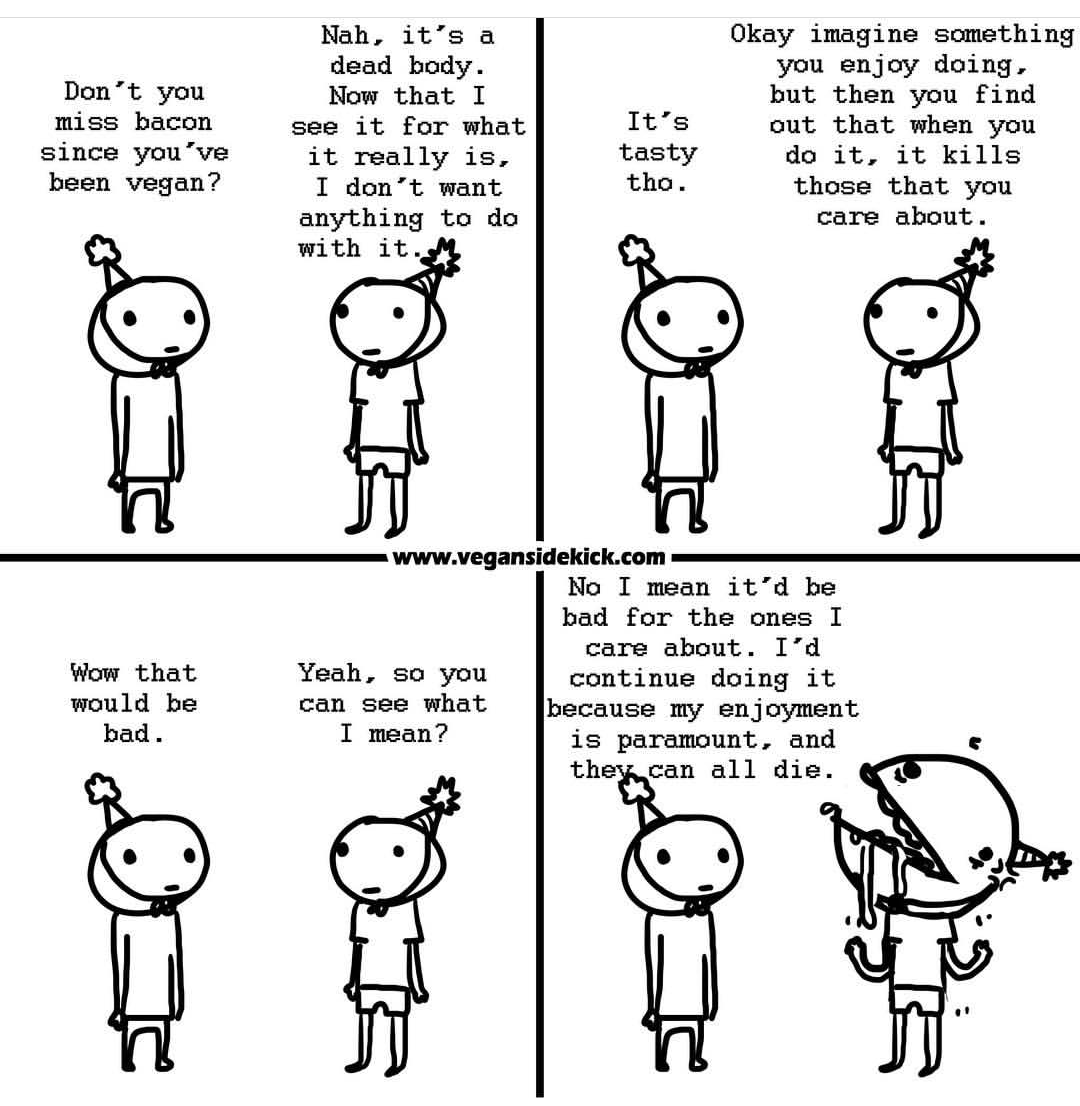
There are other problems with putting the emphasis on veganism as a simple dietary choice. I’ve come across many people at vegan events who dislike the idea of vegan junk food; for these people, veganism is about ‘eating clean’: matching your diet with your conscience, if you will. That’s fine and of course a balanced vegan diet has enormous health benefits when done responsibly. However, it seems closed-minded to dismiss the place of fries, vegan burgers, dairy-free mac ‘n’ cheese etc in making a vegan lifestyle more attractive to meat eaters (and to vegans!) Despite the mainstreaming of varied vegan products in UK supermarkets this year, lots of omnivores still believe that veganism is about ‘rabbit food’: dry salads and tofu. I love a healthy vegan Buddha bowl but I also love a Crosstown double-chocolate vegan doughnut, just as many omnivores love both salads and cupcakes. In this sense, confusing plant-based and vegan can reinforce unjustified negative stereotypes about veganism which can make a compassionate, inclusive and liberating movement appear restrictive, difficult and exclusive. At the extreme end of this, conflating veganism with a restrictive diet can associate the lifestyle with eating disorders, one very public case being ‘The Vegan Blogger’ Jordan Younger who used veganism as a cover for her orthorexia, an extreme form of obsessive healthy dieting. And of course, on the flip side, many people who might wish to adopt a genuinely healthy plant-based diet may be put off doing so by the idea that people will label them ‘vegan’, with all the connotations that accompany that tag. And that means less people stopping eating meat and dairy.
Veganism is not a diet, healthy or otherwise. It’s a way of living that frames your food choices just as it frames your other purchasing decisions, with myriad dietary choices within that framework. One of my favourite vegan advocates, Colleen Patrick-Goudreau, puts this perfectly on her Instagram:
The reason I don’t know what a “vegan diet” is is because “vegan” is as broad as it is specific. Specifically, it means not consuming anything that comes out of or off of an animal. Broadly, it means eating everything else. Once you narrow that down, you’re in diet territory. However you choose to eat WITHIN this large construct is a diet, and that’s your business… It’s impossible to say “a vegan diet didn’t work for me” because there are hundreds of ways to “eat vegan”.
Finally, the biggest problem with advocating veganism as a dietary choice alone is that you make veganism vulnerable to the hackneyed meat-eater argument, ‘It’s my personal choice to eat meat, just as it’s your personal choice to eat plants. Don’t impose your personal choice on me’. If you eat ‘vegan’ for health reasons, it is a personal choice: it is your own health and body that’s at stake. And what right have you to dictate how somebody else cares for their own body? But if you’re vegan because you don’t want animals to suffer, there are other lives at stake in your decision. The food you consume and the products you buy have wider consequences; there are – or are not – victims of your choices. In this sense, veganism becomes less of a personal issue. Advocating veganism for animals, where you can argue that someone’s choice to eat meat has consequences for others, is therefore far more effective than advocating it for individual health reasons.
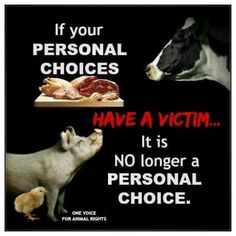
I think that going plant-based can be a great stepping stone to veganism with obvious ethical, environmental and health benefits, but it’s also okay for a plant-based diet to be an endpoint in itself. If you do call yourself vegan, it’s important to remember that this is so much more than a personal health choice. Ultimately, the animals on factory farms don’t care how great you look in a bikini or how many kilos you can dead-lift. Those vegans stuffing their faces with chick’n nuggets and vegan-mayo soaked seitan burgers might not be the healthiest, but they have other equally admirable priorities.
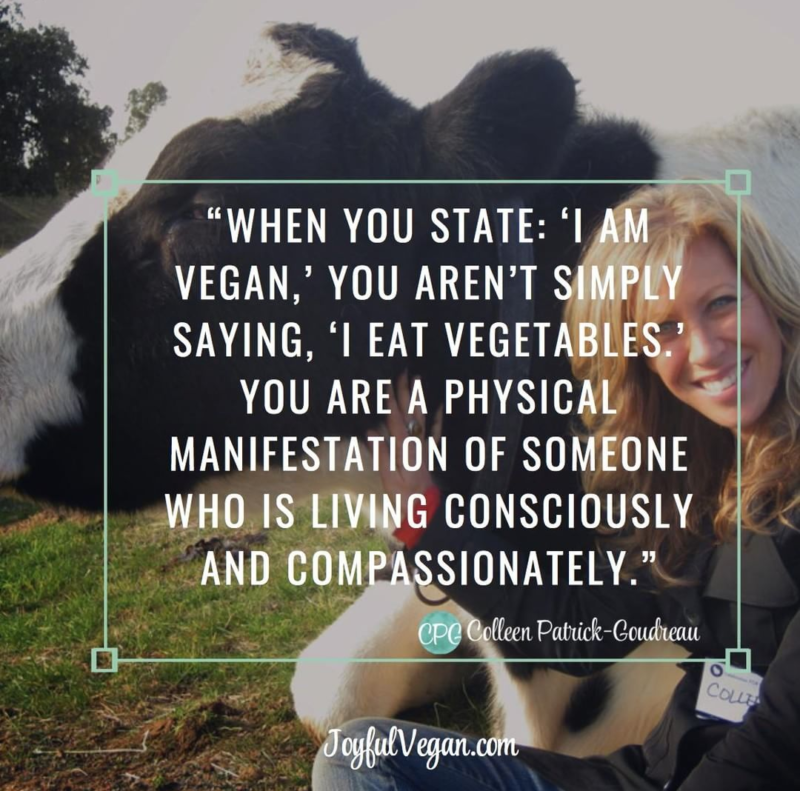
As much as I would like to think like the rest of the vegans (and I’m not a vegan), veganism really is just a diet, it’s just animals and the concern of animals all concerned with what you eat, not just a plant-based diet? It’s just another vegetarian way of life following tradition and refuses to evolve, you have some defending to do because veganism isn’t perfect, if you want veganism to evolve then fine, you can go against my opinion, as a vegetarian it’s all about the animals, it’s about avoidance of beasts, not animals, as I don’t care about a dead fish, however I only care for fish concerning that it’s a wild, line-caught sustainable fish and not a shark, swordfish, orange roughy or big eye tuna, the only ones who care are pescetarians, however I’m both a pescetarian and quasi-vegetarian, for bacon’s needed in a fancy breakfast at McDonald’s, as unnecessary as this might seem, it’s unnecessary to go to extremes, you won’t touch a single animal. Yes extreme veganism (surprise surprise there’s an extreme version) involves animal activism, not wearing, using, exploiting or touching animals and no carnivals, circuses, aquariums, horseback riding, etc, non-extreme versions are just vegan abolitionism or veganarchism or similar thing or just regular veganism of disgust at putting milk in my coffee and protesting, and doing vegan activism, saving a million animals, milder forms are just what you eat without the protesting but without wearing or using animals, such as leather and silk, and not eating honey. I could be wrong as usual, I know these things because I was once a vegan, if you’re not saving animals and if you’re just a vegan, it becomes just a diet.